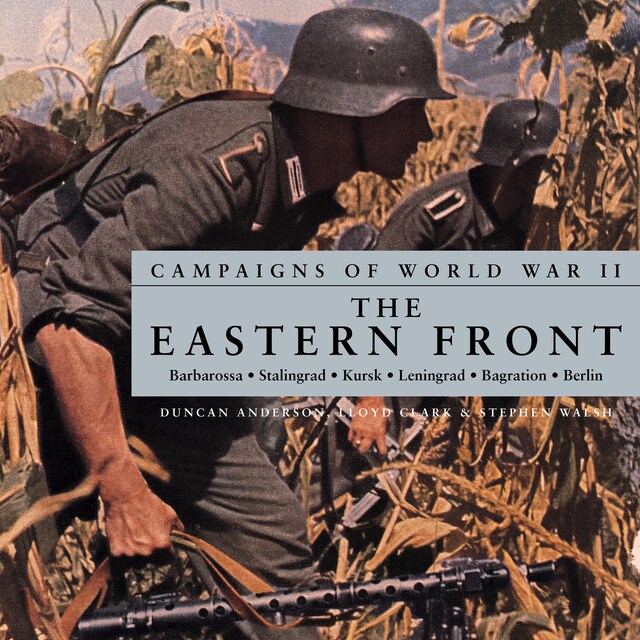
Campaigns of World War II - The Eastern Front (Unabridged)
Description of book
The conflict on the Eastern Front in World War II was colossal in both scale and intensity, as the two infamous dictators of the twentieth century - Adolf Hitler and Josef Stalin - vied for supremacy in Eastern Europe. On 22 June 1941 it was Hitler's fateful decision to launch the largest invasion ever seen, Operation Barbarossa, when 138 German divisions attacked the Soviet Union. Four years later, some two million German and eleven million Russian soldiers had ben killed in the course of their struggle, and names like Stalingrad and Kursk had been burnt into the world's consciousness. The Eastern Front is a detailed account of this epic clash, the greatest continuous land battle in history. The book explores in detail the state of the German and Soviet armies in 1941, and the planning and preparation of both sides for the German attack. Campaigns covered include Operation Barbarossa, the rapid German advance on Moscow and the first Soviet winter offensive in 1941-42. The race for the Caucasian oilfields in Operation Blue, as the 1942 German campaign was known, is also described, as is the fight for Stalingrad and the infamous destruction of the German Sixth Army, the Soviet success in early 1943, and the resultant German counter at Kharkov. The book details Hitler's last major offensive in the summer of 1943 that led to the world's largest tank battle at Kursk, and the significant Soviet victories that followed, with Operation Bagration in 1944 capturing huge numbers of German prisoners. Finally, the book looks at the Soviet advance onto German soil, the capture of Berlin itself and the subsequent suicide of Adolf Hitler as shells rained on his bunker. Written by three leading military historians, the Eastern Front is a superb history of the cataclysmic struggle between Nazi Germany and the Soviet Union.


